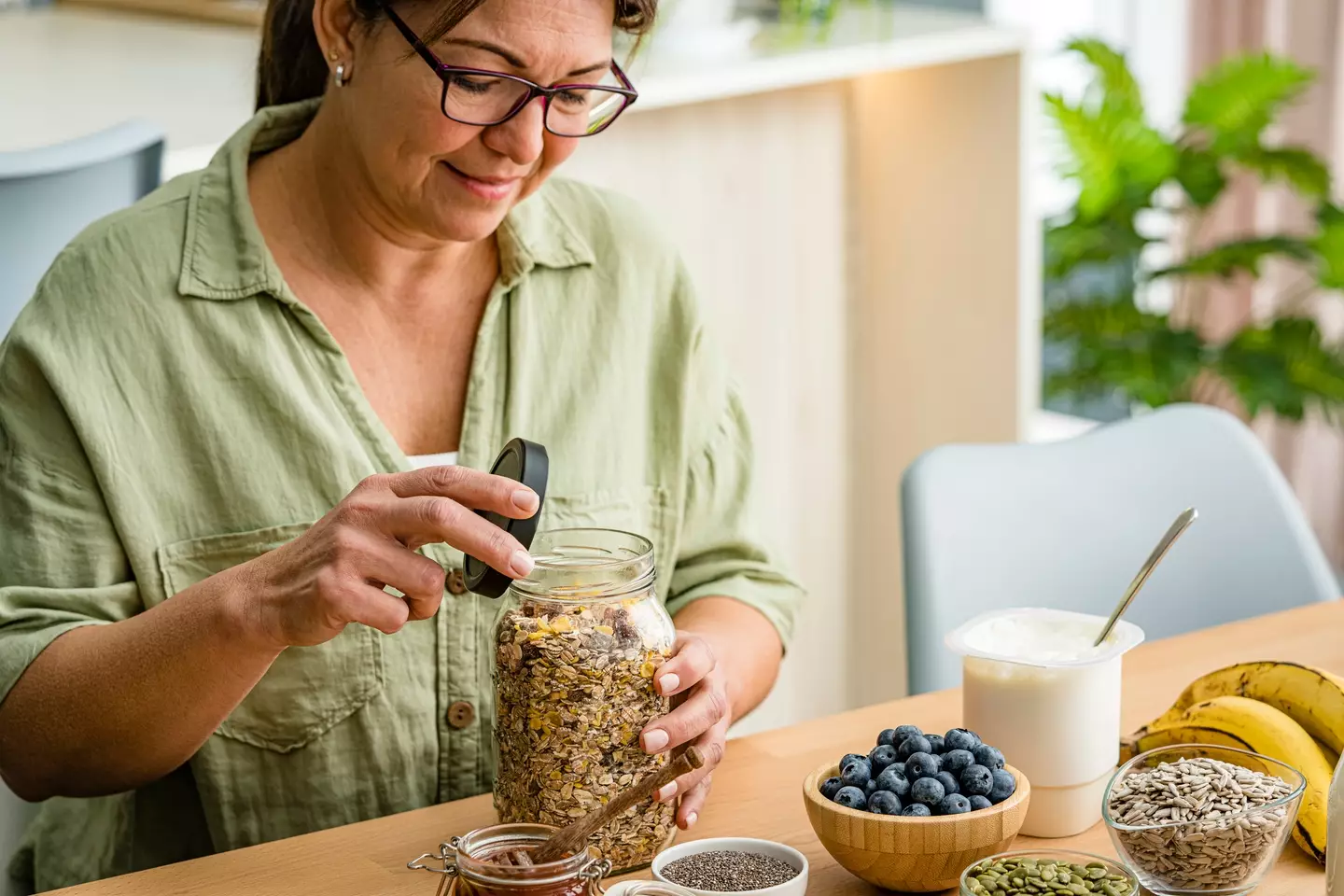
Fibremaxxing is one of the more sensible TikTok trends out there.
The thinking goes that Western diets typically don’t contain enough fibre. It’s an essential component for good digestion, giving your stomach muscles something to push against and helping to bind up your poos into regular stools.
Fibre is a carbohydrate that we can’t digest, and it’s sourced from plants. Our digestive systems can’t break down plant cell walls owing to their cellulose content, so it passes through our systems whilst offering some resistance and matter to bind our stools together.

Advert
Too much of it can cause constipation, especially if you don’t drink enough water – two to two-and-a-half litres per day, or more if you’re out in the heat or exercising – but you’re probably getting too little rather than too much.
The NHS recommends eating 30g of it per day, but it’s estimated that the average UK adult only has a daily intake of 20g.
Fibremaxxing is a trend seeking to increase this average, with people typically achieving it by adding fibrous foods to each of their meals. It’s relatively easy to do, too. For example, if you have peanut butter on toast for breakfast, adding sliced banana not only makes it a tastier meal but also adds another shot of fibre.
Side salads, a portion of baked beans, and snacking on nuts and seeds are other options, but the possibilities are practically endless.
A concerning trend that’s seen more and more people under the age of 50 being diagnosed with bowel and colon cancers might be attributable in part to a lack of dietary fibre, highlighting the importance of getting more of it into your system.
Along with the health benefits offered by fibre – including greater digestive health, reduced risk of chronic illnesses like type 2 diabetes and heart disease, and a lowered risk of developing some cancers – it’s also a useful tool for weight management.
Fibre essentially helps you to feel more satiated, curbing hunger pangs and potentially helping to limit unhealthy snacking between meals.
To that end, the fibremaxxing trend could also help practitioners to lose weight.

Kara Landau, a registered dietician and nutrition advisor to the Global Prebiotic Association, told Healthline: “Compared to many of the unsafe and not scientifically supported dietary trends that sweep across social media, fibremaxxing at its essence is actually a very positive direction for people’s eating patterns to go, and is aligned with common dietary advice offered by many registered dietitians and health care professionals.
Landau explained that, along with an increased sense of satiety, fibre can promote a healthy microbiome which can in turn help to regulate hormones influencing your mood and your appetite.
Get out there and eat some plants!
